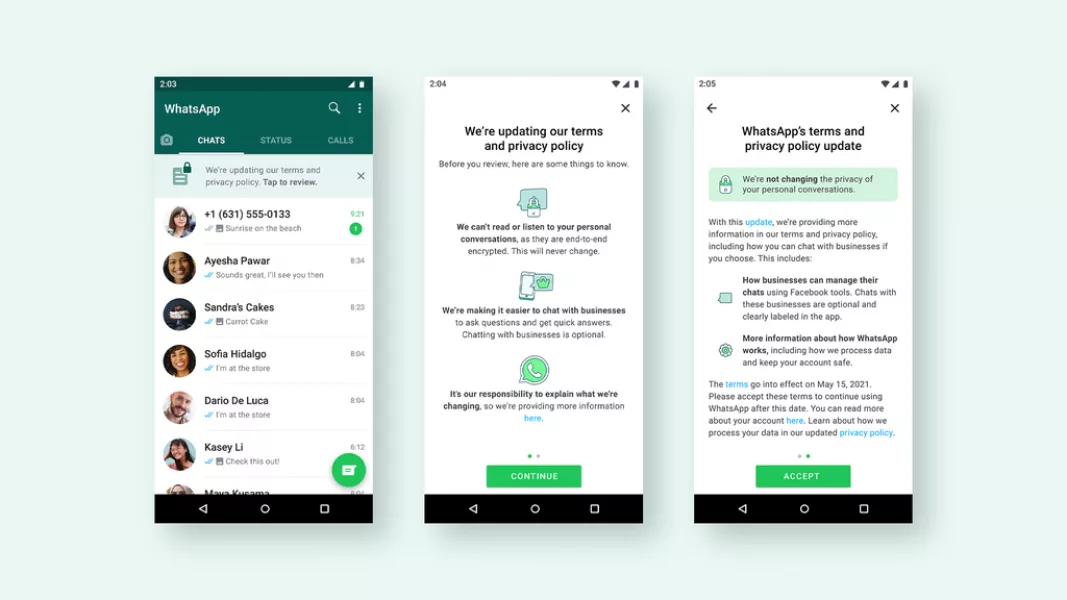WhatsApp users will not be able to read or send messages after May 15th if they do not accept the app’s updated terms and conditions.
The service will begin displaying a banner alert in the coming weeks, after a previous attempt earlier in the year was halted amid fears data on the app would be shared more closely with Facebook’s main social network.
Users who do not accept the new terms will still be able to receive calls and notifications for a “short time”, but messaging will not be possible.
There will be a chance to agree after the deadline and have full functionality restored, but WhatsApp warned that inactive accounts are generally deleted after 120 days.

“To give you enough time to review changes at your own pace and convenience, we’ve extended the effective date to May 15th,” WhatsApp said.
“If you haven’t accepted by then, WhatsApp will not delete your account.”
Earlier this year, the app began sending full-screen notifications to users alerting them they needed to review and agree to new terms of service and privacy policy in order to continue using the platform, which combined with references to parent company Facebook, sparked confusion and concern among some users over possible increased data sharing.
In the days that followed, rival messaging apps saw download numbers increase as some moved away from WhatsApp, leading the firm to clarify the nature of the change and delay its rollout.
The platform has reiterated that the update will not allow WhatsApp or Facebook to read or listen to messages sent by users and is focused on policy changes necessary to allow users to message businesses on WhatsApp.
Most of us don’t read the terms and conditions
“Most of us don’t read the terms and conditions before accepting updates and getting on with using our messaging or other apps,” said Dr Bill Mitchell, director of policy from BCS, The Chartered Institute for IT.
“If we do read them, we’re unlikely to understand every aspect of the precise legal wording.
“That’s why it’s important and welcome when social media companies work harder to summarise these updates in more accessible, easy-to-understand formats.
“It’s vital to have transparency and clear communication from tech companies on how they gather, store, share and process our data to understand our preferences and anticipate our choices.”







